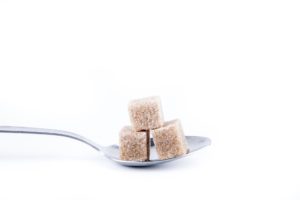Are Antidepressants Just Placebos With Side Effects?
Reviews of large numbers of studies on antidepressants – including studies the drug companies never published because they did not have positive outcomes – continue to show that improvement in patients given antidepressants is due largely, if not entirely, to the placebo effect and not the drugs.
In 2010, Irving Kirsch, Ph.D., professor of psychology at the University of Hull in England and author of “The Emperor’s New Drugs: Exploding the Antidepressant Myth,” published an article on the conclusions he and his colleagues reached after reviewing data the drug companies had sent to the FDA. The data, obtained by using the Freedom of Information Act, included results that had never been published because the results were not favorable to the drugs the companies were testing.
Kirsch termed the results of the review “shocking.” His group’s meta-analysis (the analysis of many clinical trials on the same subject – in this case, antidepressants) found that placebos – sugar pills – are 82% as effective as antidepressants. However, they further found that even this “relatively small difference between drugs and placebos might not be a real drug effect at all. Instead, it might be [nothing more than] an enhanced placebo effect.”
The placebo effect refers to perceived or actual improvement in health that does not come from the treatment the patient is receiving, which may be a dummy pill, but from the patient’s belief that the treatment will help.
The FDA only requires two clinical trials that show any statistical difference between drug and placebo in order to approve a drug – even if a much larger number of studies failed to show positive results. And the positive result can be so small that it makes no real difference in people’s lives. The FDA does not require results to be clinically significant, just statistically significant.
Kirsch’s results are supported by another group of researchers who reviewed four meta-analyses of clinical trials on antidepressants that were submitted to the FDA.
Their conclusion, published in Psychotherapy and Psychosomatics last year, stated that “antidepressants are only marginally efficacious [effective] compared to placebos,” and even this modest benefit might be inflated by “profound publication bias.” Publication bias means the tendency of researchers and publications to publish results that are favorable for the drugs being tested and to hide or reject results that are unfavorable, thereby shaping both professional and public opinion by unscientific means.
These same researchers also analyzed the data from STAR*D (Sequenced Treatment Alternatives to Relieve Depression), the largest antidepressant effectiveness trial ever conducted. They found that “the effectiveness of antidepressant therapies was probably even lower than the modest one reported by [that study’s] authors, with an apparent progressively increasing dropout rate across each study phase.” The progressively increasing dropout rate, as more and more participants dropped out of the study because of adverse effects they experienced, means the study became more and more biased towards a favorable outcome.
The researchers found results on the antidepressant studies to be so inflated that they call for a complete reconsideration of the use of antidepressants: “The reviewed findings argue for a reappraisal of the current recommended standard of care of depression.”
Their concern is shared by Marcia Angell, former editor-in-chief of The New England Journal of Medicine and now a senior lecturer in social medicine at Harvard Medical School. In the first part of her recent, two-part essay in The New York Review of Books, she writes about the disturbing extent to which the pharmaceutical companies that sell psychoactive drugs – through both legal and illegal marketing and “what many people would describe as bribery” – have come to determine the “diagnosis” and treatment of mental illness.
In the second part of her essay, she calls for more research into alternatives to antidepressants: “More research is needed to study alternatives to psychoactive drugs, and the results should be included in medical education.”
Indeed. If antidepressants are no more effective than placebos, but come at a great cost and expose individuals to a lengthy and growing list of devastating and even life-threatening side effects, including deepening and chronic depression and suicide, it only makes sense that diet, nutritional supplements, exercise, and meaningful activities be explored as alternatives.
Just as important, depression is very often a mental symptom of an undiagnosed, untreated physical condition. A complete physical examination by a non-psychiatric physician should always be done to look for underlying physical conditions before antidepressants or other psychotropic drugs are prescribed.
Individuals currently taking antidepressants are cautioned against suddenly discontinuing them. No one should stop taking any psychiatric drug without the advice and supervision of a competent medical doctor.
If you or someone you know has been harmed by antidepressants or other psychiatric drugs, you can contact us privately by clicking here or by calling 303-789-5225. All information will be kept in the strictest confidence. We also welcome your comments below.

